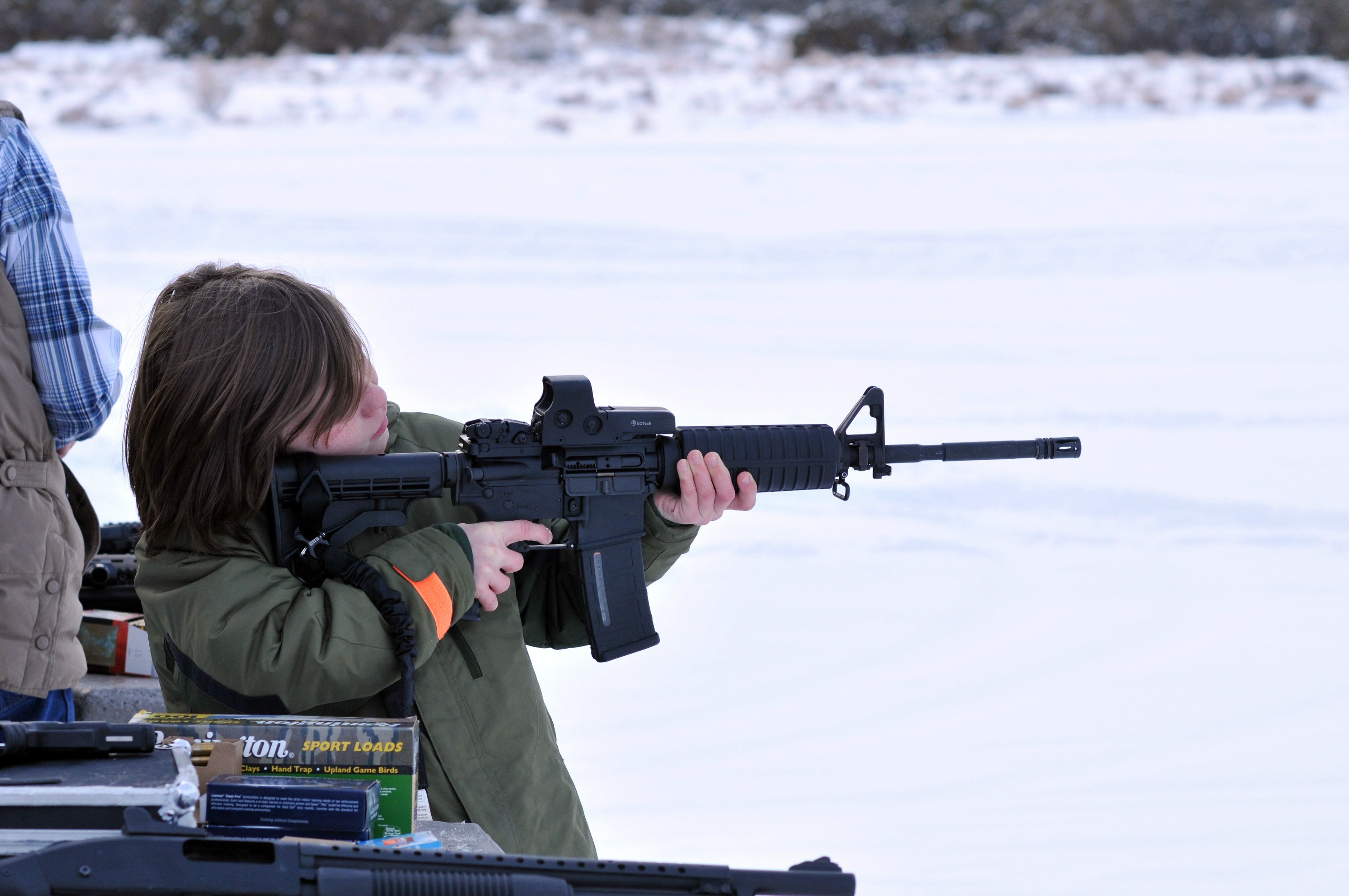
In a poll taken less than two weeks after the deadly massacre of 17 people at Marjorie Stoneman Douglas High School in Parkland, a Quinnipiac University Poll released Wednesday shows Florida voters oppose 56-to-40 percent allowing teachers and school officials to carry guns on school grounds. Voters with children under 18 years old in public schools oppose arming school personnel 53-to-43 percent.
But 51 percent of voters say "increased security at school entrances" would do more to reduce gun violence in schools, compared to 32 percent who say stricter gun laws would do more and 12 percent who say armed teachers would do more to keep schools safe, the independent Q-Poll finds.
Florida voters support 62-to-33 percent a nationwide ban on the sale of "assault weapons."
In a separate question with different wording, voters support 53-to-42 percent a nationwide ban on the sale of all "semi-automatic rifles."
Voters support 65-to-29 percent "stricter gun laws," with strong support for other gun control measures:
- 96-to-3 percent for requiring background checks for all gun buyers;
- 62-to-34 percent for a nationwide ban on the sale of high-capacity magazines that hold more than 10 rounds;
- 87-to-10 percent for a mandatory waiting period on all gun purchases;
- 78-to-20 percent for requiring that all gun buyers be at least 21 years old;
- 89-to-8 percent for allowing police or family members to petition a judge to remove guns from a person who may be at risk of violent behavior;
- 92-to-6 percent for banning gun ownership by anyone who has had a restraining order for stalking, domestic abuse or other reasons.
"The notion that we are bitterly divided on political matters -- the case for past decades -- has found an exception to that rule. Florida voters -- be they young or old, white or black, man or woman -- have a common enemy," said Peter A. Brown, assistant director of the Quinnipiac University Poll.
"Floridians are strongly united that more needs to be done to reign in guns, especially the type of gun used this month to massacre 17 people in Parkland," Brown added.
"Depending on how questions are asked, large majorities support efforts to restrict gun purchases; to require background checks for buyers and to ban certain types of guns.
"These numbers show remarkable agreement across the electorate, the kind not seen very often these days," Brown said.
It is "too easy" to buy a gun in Florida today, 63 percent of voters say, while 28 percent say it is "about right" and 1 percent say it is "too difficult."
Florida voters oppose 56-to-36 percent allowing local governments to adopt gun laws that are stricter than state law.
If more people carried guns, Florida would be "less safe," 56 percent of voters say, while 34 percent say the state would be "safer."
Florida's state government must do more to reduce gun violence, 75 percent of voters say, while 18 percent say government is doing enough.
Voters give Gov. Rick Scott a split 42-to-45 percent approval rating for his handling of the issue of gun violence.
Voters disapprove 54-to-40 percent of President Donald Trump's handling of gun violence and disapprove 50-to-39 percent of the president's response to the Parkland school massacre.
Voters disapprove 52-to-31 percent of Sen. Marco Rubio's handling of gun violence and give Sen. Bill Nelson a divided score as 36 percent approve and 37 percent disapprove.
Voting Rights for Former Felons
Florida voters support 67-to-27 percent restoring voting rights to convicted felons, other than those convicted of murder or sexual offences, who have completed their sentences.
Every listed party, gender, education, age and racial group supports this idea, with support ranging from 50-to-42 percent among Republicans to 82-to-15 percent among Democrats.
From Feb. 23-26, Quinnipiac University surveyed 1,156 Florida voters with a margin of error of +/- 3.6 percentage points, including the design effect. Live interviewers call landlines and cell phones.
The Quinnipiac University Poll, directed by Douglas Schwartz, Ph.D., conducts nationwide public opinion surveys, and statewide polls in Pennsylvania, New York, New Jersey, Connecticut, Florida, Ohio, Virginia, Iowa and Colorado as a public service and for research.
To see the methodology detail of this Q-Poll, click here.
Source: SunShineStateNews

No comments:
Post a Comment